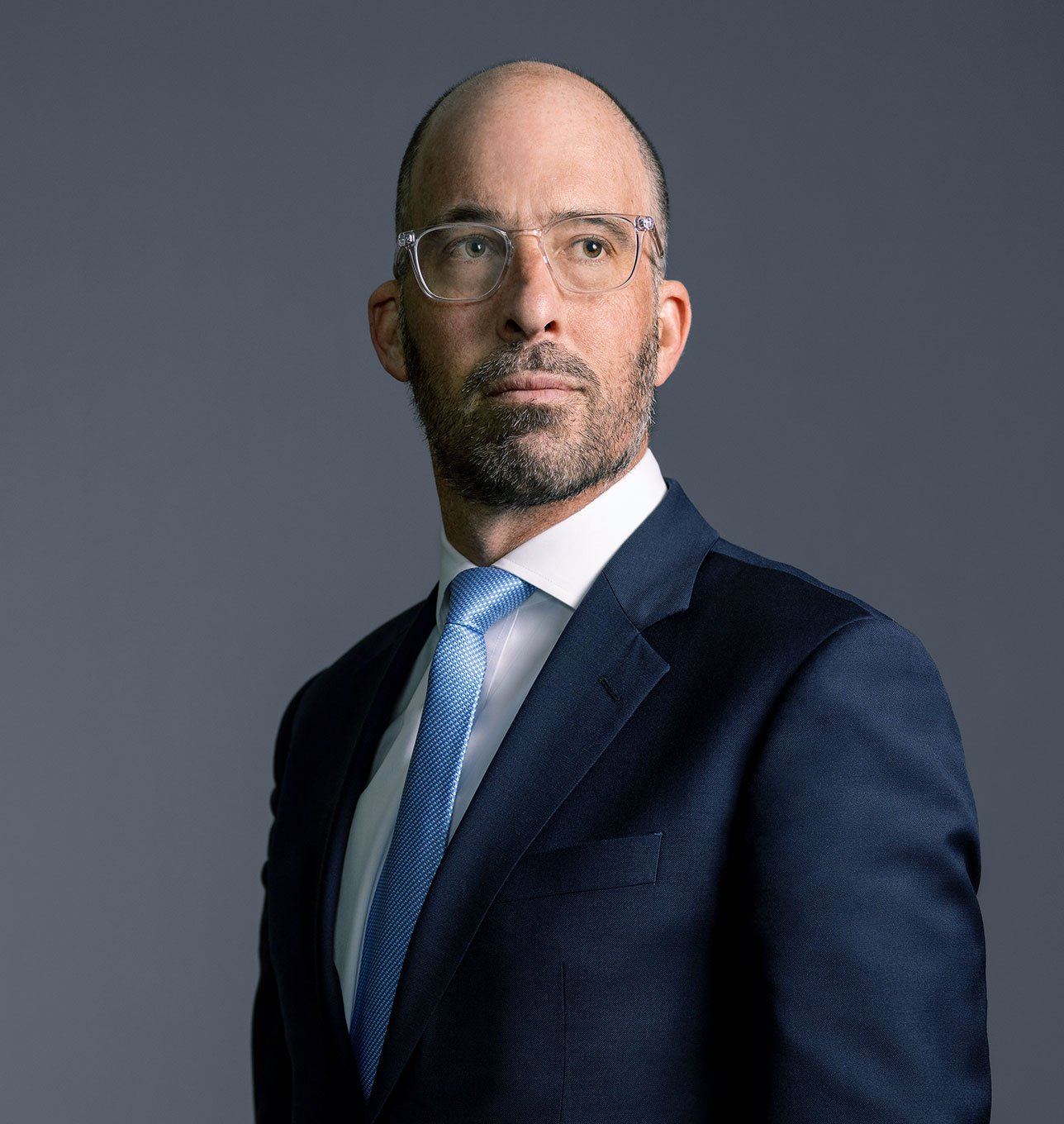Are Companies in Bankruptcy Eligible for PPP Loans under the US CARES Act?
As discussed in an earlier Legal Update,1 substantial uncertainty exists over whether companies in bankruptcy are eligible for loans under the Paycheck Protection Program, or PPP, which was established by the CARES Act to support small businesses by offering SBA-guaranteed loans on advantageous terms. Several recent bankruptcy court decisions underscore this uncertainty.
* * *
The CARES Act does not expressly provide that companies in bankruptcy are ineligible to receive PPP loans; the CARES Act is, instead, silent on the issue. Nonetheless, the SBA has taken measures to block companies in bankruptcy from receiving PPP loans—first, by requiring participating lenders to use an SBA-sponsored loan application that, on its face, disqualifies any small business in bankruptcy and, second, by issuing administrative guidance in the form of a new interim final rule, effective April 24, 2020, expressly providing that companies in bankruptcy are ineligible to participate in the PPP (the “Interim Final Rule”).2 In response to the conflict between these rules and the text of the CARES Act itself and in an attempt to access PPP loans that are essential for certain companies to stay in business, a growing number of debtors whose PPP applications were denied on the basis of the SBA’s bankruptcy restriction have turned to bankruptcy courts for relief.
To date, these bankruptcy courts have not taken consistent approaches, which has only led to further uncertainty. Some bankruptcy courts have chosen to strictly follow SBA policy and have denied debtor requests for access to PPP loans. Other courts have relied on public policy to negate the SBA’s rules in finding that debtors are permitted to seek PPP funding. One need look no further than two of the nation’s busiest and most prominent bankruptcy courts for examples of this inconsistency.
In Hidalgo Cnty. Emergency Serv. Found. v. Carranza (In re Hidalgo Cnty. Emergency Serv. Found.), Case No. 19-20497, Adv. P No. 20-2006 (Bankr. S.D. Tex. Apr. 25, 2020), the U.S. Bankruptcy Court for the Southern District of Texas—which was the first bankruptcy court to consider and rule on the issue—ruled that the SBA cannot deny debtors access to PPP loans on the sole basis of the debtor’s bankruptcy filing. Specifically, in Hidalgo, the court entered a temporary restraining order enjoining the SBA from denying debtor’s PPP application on that sole ground. In so ruling, Chief U.S. Bankruptcy Judge David Jones reasoned that, despite the SBA’s arguments to the contrary, providing PPP loans to bankruptcy debtors does not present an unacceptably-high risk of unauthorized use of funds or non-repayment of unforgiven loans because the PPP is not a traditional “loan program” but a “support program” enacted to provide essential credit to companies that fit the SBA’s “small business” definition. Accordingly, the public interest would be better served by allowing debtors, such as the health care provider in Hidalgo, to access PPP loans in order to maintain adequate staffing levels, satisfy payroll obligations, and continue business operations during the COVID-19 pandemic—an objective that is the cornerstone of the PPP and CARES Act.
Since entry of the Hidalgo order on April 25, 2020, a number of bankruptcy courts have imposed similar orders against the SBA. See, e.g., Roman Catholic Church of the Archdiocese of Santa Fe v. SBA, et al. (In re Roman Catholic Church of the Archdiocese of Santa Fe), Case No. 18-13027, Adv. P. No. 20-01026 (Bankr. D. N.M. May 1, 2020) (entering temporary injunction enjoining the SBA from denying debtor’s PPP application as an arbitrary and capricious attempt to impose eligibility requirements not otherwise present in the actual text of the PPP “support program”); Calais Reg’l Hosp. v. Carranza (In re Calais Reg’l Hosp.), Case No. 19-10486, Adv. P. No. 20-1006 (Bankr. D. Me. May 1, 2020) (entering temporary injunction enjoining the SBA from denying debtor’s PPP application on the sole basis of debtor’s pending Chapter 11 case); Penobscot Valley Hosp. v. Carranza (In re Penobscot Valley Hosp.), Case No. 19-10034, Adv. P. No. 20-1005 (Bankr. D. Me. May 1, 2020) (same); Springfield Hosp., Inc. v. Carranza (In re Springfield Hosp., Inc.), Case No. 19-10283, Adv. P. No. 20-01003 (Bankr. D. Vt. May 4, 2020) (same).
On other end of the spectrum, in Cosi, Inc., et al. v. SBA, et al. (In re Cosi, Inc., et al.), Case No. 20-10417, Adv. P. No. 20-50591 (Bankr. D. Del. Apr. 30, 2020), the U.S. Bankruptcy Court for the District of Delaware deferred to the SBA with respect to deciding how the PPP program is to be administered. Specifically, the Cosi court denied the debtors’ request for entry of a temporary injunction enjoining the SBA from denying the debtors’ PPP application on the basis of the debtors’ status as a bankruptcy debtor. In so ruling, Judge Brendan Shannon relied on the plain meaning of the Interim Final Rule and, unlike the court in Hidalgo, afforded the SBA the degree of deference that is traditionally provided to federal agencies in implementing legislation and regulation. Ultimately, the court held that it did “not have the statutory power to enjoin” the SBA. Certain other bankruptcy courts have issued opinions based on similar reasoning. See, e.g., Asteria Educ., Inc. v. Carranza (In re Asteria Educ., Inc.), Case No. 20-50169, Adv. P. No. 20-05024 (Bankr. W.D. Tex. Apr. 21, 2020) (denying the debtor’s request for a similar temporary restraining order against the SBA because the court does not have the authority to substitute its judgment for the SBA in its administration of the PPP); In re Elemental Processing, LLC, Case No. 20-50640 (Bankr. E.D. Ky.) (denying the debtor’s motion seeking authority to incur post-petition financing pursuant to a PPP loan that was approved pre-petition in light of the SBA’s Interim Final Rule).
Notwithstanding his ruling in Cosi, Judge Shannon voiced his “dismay[] at the consequences” of the SBA’s decision to preclude bankruptcy debtors from accessing PPP loans. Judge Shannon agreed with debtors’ counsel that the “[Cosi] debtors are precisely the sort of business the PPP was enacted to protect—they are a small business (as defined by the SBA) in one of the industries hardest hit by the pandemic and are desperately trying to obtain funding to meet payroll for their employees.” In re Cosi, Inc., et al., Case No. 20-10417, Adv. P. No. 20-50591, ECF No. 138 (Bankr. D. Del. Apr. 28, 2020). Judge Shannon even suggested that Cosi should consider moving for an emergency dismissal of its Chapter 11 cases in order to seek PPP funds as a non-bankruptcy debtor.3
Conclusion
Conflicting bankruptcy court decisions have created another layer of uncertainty for small businesses attempting to navigate the evolving COVID-19 landscape—and multiple cases on the eligibility issue remain pending.4
Further, even for those few debtors that have already challenged and successfully overcome the SBA’s bankruptcy restriction in the first instance, the question remains whether those debtors will ultimately be eligible for receipt of PPP funding. As evidenced by the rapid disbursement of the initial round of PPP funds, together with the same first-come, first-served distribution scheme for the current “second” round of limited PPP funds, many small business debtors likely will remain at a difficult crossroads—either apply for a PPP loan or file for bankruptcy protection.
***
Please visit Mayer Brown’s COVID-19 Portal for additional insights on and analysis of COVID-19’s impact on business worldwide.
1 See Paycheck Protection Program Loans and DIP Financing (Apr. 29, 2020).
2 See Interim Final Rule, 13 C.F.R. Parts 120-21, Business Loan Program Temporary Changes; Paycheck Protection Program – Requirements – Promissory Notes, Authorizations, Affiliation, and Eligibility (RIN 3245-AH37), at p. 8-9.
3 The Bankruptcy Court did not actually address the effect that such a dismissal would have on Cosi’s ability to access and/or retain PPP funds in the event of a subsequent bankruptcy filing. However, debtors in other cases have begun testing those waters. See In re Advanced Power Tech., LLC, Case No. 20-13304 (Bankr. S.D. Fla. Apr. 24, 2020) (dismissing the debtor’s Chapter 11 case without prejudice so the debtor could apply for a PPP loan); but cf. In re Capital Rest. Grp., LLC, Case No. 19-65910 (Bankr. N.D. Ga. Mar. 28, 2020) (dismissing the debtor’s Chapter 11 case with prejudice to prevent debtor’s circumvention of SBA’s eligibility guidance).
4 See, e.g., Starplex Corp, et al. v. Carranza (In re Blue Ice Inv., et al.), Case No. 20-02208, Adv. P. No. 20-00095, ECF Nos. 1-3 (Bankr. D. Ariz. Apr. 13, 2020) (seeking an injunction to enjoin the SBA from denying the debtors’ PPP application on the sole basis of the Interim Final Rule’s bankruptcy restriction); Organic Power LLC v. SBA, et al. (In re Organic Power LLC), Case No. 19-01789, Adv. P. No. 20-00055 (Bankr. D. P.R. Apr. 27, 2020) (same); In re TooJay’s Mgmt., LLC, Case No. 20-14792 (Bankr. S.D. Fla. Apr. 29, 2020), ECF. No. 2 (seeking post-petition approval of a PPP loan that was approved and disbursed before the debtor filed for bankruptcy protection); The Diocese of Rochester and The Diocese of Buffalo v. SBA, et al., Case No. 20-06243 (W.D.N.Y. Apr. 20, 2020) (alleging that the SBA unlawfully discriminated against the dioceses as prospective borrowers that are also debtors in bankruptcy).



